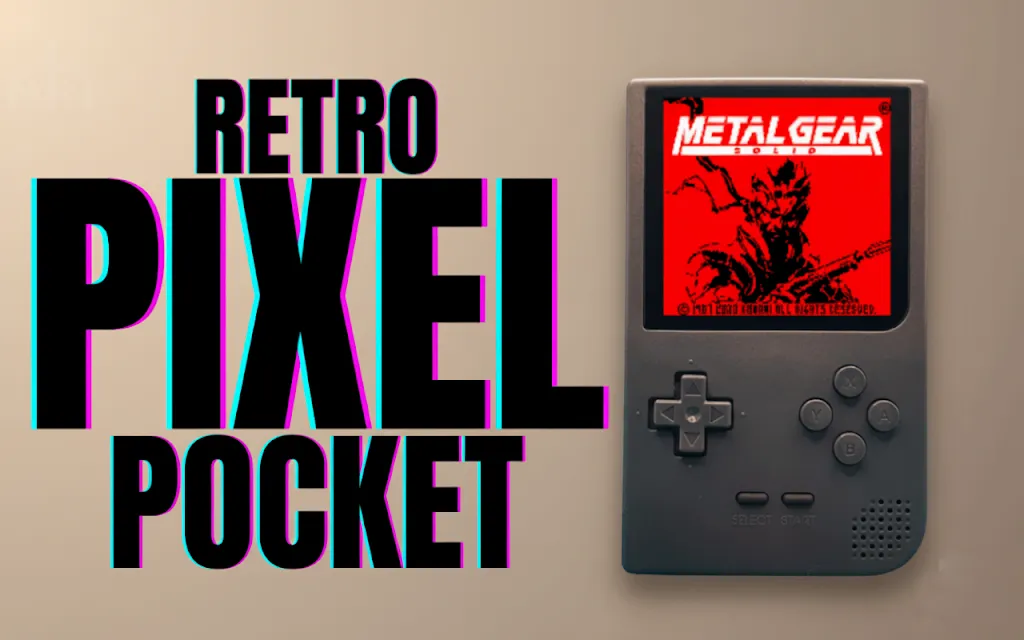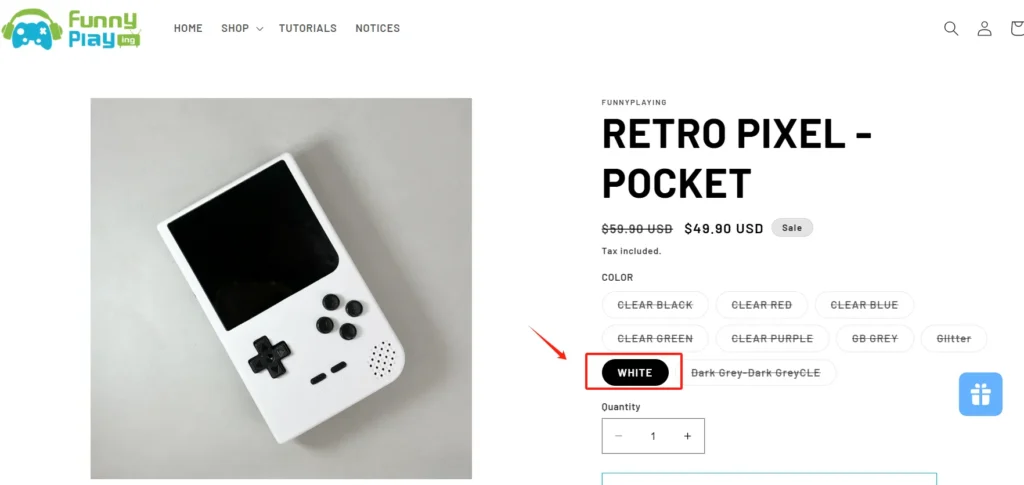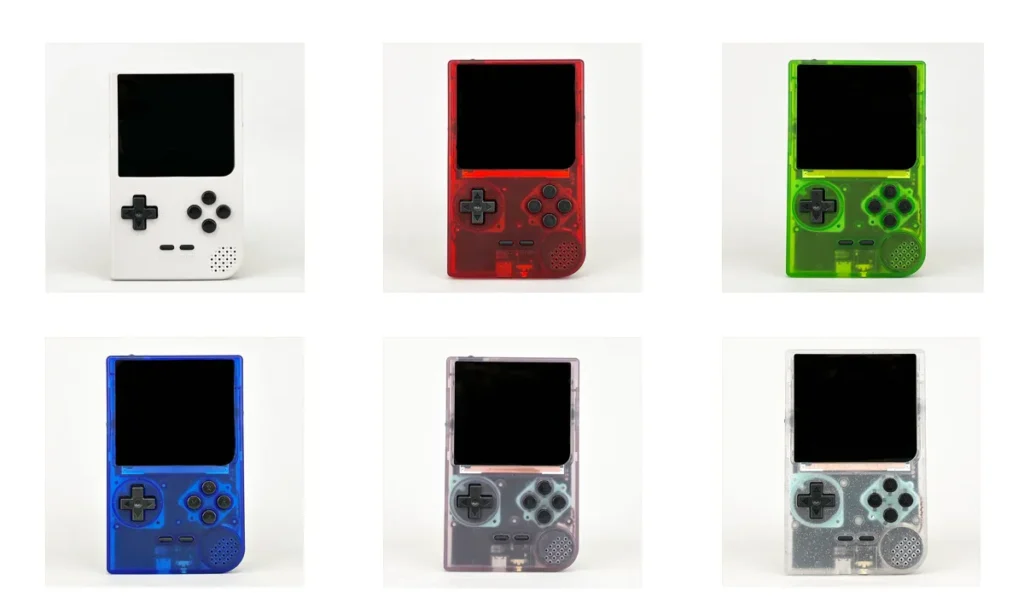contact Boss
Don’t rush to close it, talk to our boss directly, you will get a surprise.



1900+ Users
Completed User Services

The Retro Pixel Pocket is back— This time, FunnyPlaying has released a revised version with clear priorities: lower prices, more familiar hardware, and enhanced community customization.
The new model slashes the price to around $50 (yes, you read that right—it’s nearly half the original), replaces the core processor with the familiar RK3326, and runs a custom EmuELEC system. While this might seem like the perfect formula for turning a nostalgic handheld into a budget-friendly powerhouse, closer examination reveals a mix of optimism and lingering doubts.
Let’s break down the “mini replica” section by section—Don’t forget to comment after you’ve read it. Your opinion may be more important than the manufacturer’s.

At present, only white ones are available for purchase
With a price drop to $50, it directly forces competitors into the role of “opponents” in the boxing ring. The RK3326 platform’s strengths include a broad ecosystem, rich firmware support, and performance capable of driving most 8-bit/16-bit and some 3D retro games.
The screen remains the highly praised 720×720 IPS display, maintaining its high-quality performance. For newcomers and those wanting to dip their toes into retro gaming consoles, this device offers an extremely low price threshold— perfect for disassembling and studying, or simply serving as a portable gaming companion.
However, cheapness often comes with trade-offs: legacy issues like button consistency, USB port stability, and poor battery performance can’t be fixed by simply switching chips. Would you risk $50 for that? Some might say “community firmware can fix it,” but others counter: “If the hardware isn’t built to last, even the best software is useless.” “

One of the highlights of this revision is the use of a custom EmuELEC, which is said to be compatible with other firmware associated with the RK3326.
For community players, this means more flexibility in flashing, a richer selection of emulators, and update frequency, which is expected to solve the problem of the original A64 running awkwardly on Android 7.
The biggest benefit of switching chips is the support of a modern firmware ecosystem: sleep mode, power optimization, and more control options, which are not uncommon on similar RK3326 devices.
But remember this: firmware can improve the user experience, but it can’t fix the “feel” of the physical buttons. Gamers have pointed out flaws in the original version, such as button consistency and diagonal false touches—these are manufacturing quality issues that firmware can’t completely fix.
So the question is—what do you prioritize more, price or feel? Many gamers say, “Cheap is good,” but enthusiasts might scoff.
Past issues remind us that cheap doesn’t always guarantee quality. The original model suffered from issues like short battery life, weak speakers, poor USB connectivity, and a lack of a sleep mode, all of which severely impacted the user experience.
While firmware improvements introduced by the RK3326 may alleviate battery life and sleep issues, manufacturing quality and assembly consistency are crucial for long-term use.
If improvements aren’t made on the production line, and problems arise after just a few uses, then a $50 “cheap” product will become expensive, forcing frequent repairs or replacements.
In other words, the fate of this machine depends largely on FunnyPlaying’s commitment to mass production and quality control. The community can fix the firmware, but it can’t fix peeling buttons and loose connectors. Are you willing to pay a premium for a cheaper price and the associated trial and error? Or do you prefer to spend a bit more on a reputable brand?
The Retro Pixel Pocket Revision is worth considering if you’re any of the following:
If you’re an enthusiast with high expectations for key feel, build quality, and durability, I recommend holding off on purchasing until more reviews and feedback from long-term use are in. FunnyPlaying has slashed the price to a “zero barrier to entry,” but the quality threshold shouldn’t be completely ignored.
The Retro Pixel Pocket Revision lowers the barrier to entry, but its success still hinges on two factors: FunnyPlaying’s quality control and the extent to which the community can address the shortcomings of the original. If you’re willing to be an “early adopter,” this could be a very worthwhile venture; if you prioritize long-term stability, it might be wise to be conservative and wait and see. Regardless, the opinions of the nostalgic player community will directly influence its fate—your comment could mean the difference between someone purchasing the device and not.